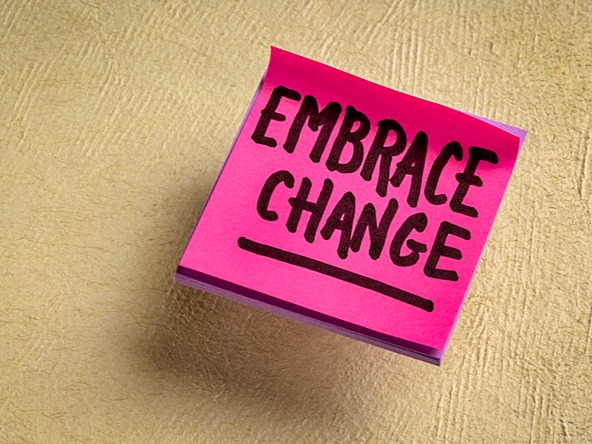What a difference a change makes

The MRS Equality, Diversity & Inclusion (ED&I) Changemaker award, sponsored by Truth, has been running for two years now and on Friday 9th June I had the pleasure of handing the award to this year’s winner, Shivonne Gates, who won for breaking new ground in supporting researchers of colour, changing the profession and improving research practices.
What particularly struck me this year was just how good the award submissions had been. Often brilliant, at times remarkable, and with a level of authenticity that was great to see. Reaching a shortlist of our eventual seven was a very hard task and choosing a winner was no easy decision either.
When judging the award, I had time to reflect on what being a changemaker is, and should be. On one level, everyone can be a changemaker, and this is important because it opens the door to all of us to make change happen. However, and without a shadow of doubt, being a changemaker requires passion, commitment, belief and an authentic sense of what is morally right.
Not all of us can embrace and act upon these values consistently and over time. So, changemakers are special; they are people who do the things most of us should want to do, but we don’t, for whatever reason. They make the difference when we wish we could. The market research industry is lucky to have a growing number of people who, in the context of ED&I, are making change happen. Now.
Our industry is moving in the right direction. We have inspired people who are doing inspiring things to make diversity, inclusion, equality and equity the bedrock of the research industry, both client and agency side. I want to focus on six things in particular that caught my imagination this year.
1 ) Both agencies and those commissioning research are driving change. This is essential, as agencies can only do so much on their own. When ED&I becomes engrained in client practice, everyone benefits, and we move forward with more pace and with greater impact. It’s always easier to stay with the status quo than it is to change, particularly for large organisations. Change of any kind requires effort, commitment and, dare I say it, admitting that previous ways of doing things were less than optimal.
2 ) We had submissions from users of research who were dealing with areas of fundamental human need and social justice. The use of research, informed by clear ED&I principles, to create greater fairness in the way issues were covered and resources shared within the housing market, for example, is something that can only be positive. This is, perhaps, one of the most powerful examples that evidence (really) matters. By changing the way we do things, whether it is the way we structure our samples or our teams, we can make a significant difference to human lives. We need to make sure we never lose sight of that.
3 ) There was a breadth of ‘diversity issues’ covered. For example, we had LGBTQ+ perspectives, submissions centred on neurodiversity, as well as ethnicity and social backgrounds. Maintaining this breadth of focus is critical, not least because our starting point has been a lack of diversity and equity in research. It would be painfully ironic if we lacked diversity and inclusion within the ED&I cause.
4 ) The ED&I challenges faced within the research industry are not equal. Changemakers often have to adapt to their direct environment in order to make change happen. Most of our entries showed an entrepreneurial spirit that led to solutions being created that worked to meet specific organisational challenges. Making change happen in our industry requires people who can adapt and work within the parameters they face. There is no single template; no playbook that can make the same change happen everywhere. But we can learn from each other.
5 ) It can be all too easy to look at scale and available resources (or lack of) as indicators of the extent of the challenge that has been overcome. In reality, it can be more difficult to change the course of a commercial juggernaut than it is to nudge a small agency in the right direction. Of course, the opposite can also be true, and this is why it’s really important not to take every situation on its merits.
6 ) It was wonderful to see that, in terms of being an ED&I changemaker, age really doesn’t matter. We had submissions from all ages and all lengths of experience; from people not long out of education through to people who had served in the industry for decades. This is as it should be. ED&I should not be owned by any age; it should be a concern and an inspiration for everyone.
Looking ahead to next year’s ED&I Changemaker award, I am hoping that it will become even clearer that we are making great strides in updating our industry. I also hope that we see even more passion, authenticity and the entrepreneurial spirit that makes change happen. It is important to be clear that we need more than allyship and verbal support. We need action. Change depends on changemakers.
Mark Thorpe is board director at Truth

We hope you enjoyed this article.
Research Live is published by MRS.
The Market Research Society (MRS) exists to promote and protect the research sector, showcasing how research delivers impact for businesses and government.
Members of MRS enjoy many benefits including tailoured policy guidance, discounts on training and conferences, and access to member-only content.
For example, there's an archive of winning case studies from over a decade of MRS Awards.
Find out more about the benefits of joining MRS here.














0 Comments